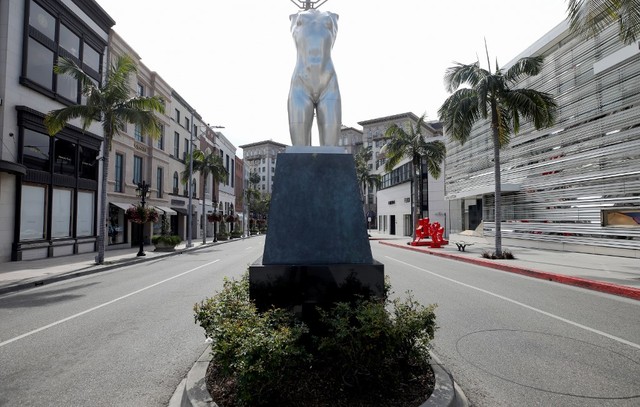Fed chair warns of widening inequality as U.S. consumption dives
United States consumer spending plunges by a record 13.6% in April 2020
by Agence France-Presse
WASHINGTON, USA – The coronavirus pandemic could widen inequalities in the United States, Federal Reserve Chair Jerome Powell warned on Friday, May 29, as government data showed consumer spending plunging by a record amount.
The world's largest economy is in dire shape with more than 40 million layoffs since lockdowns were imposed in mid-March to stop the spread of COVID-19.
And with low-wage services workers bearing the brunt of the job losses, Powell warned the pandemic could be "a great increaser of inequality."
"The pandemic is falling on those least able to bear its burdens," he said in a videoconference.
The Fed has rolled out trillions of dollars in liquidity to support industries walloped by the downturn, and Powell reiterated that supporting employment was the central bank's main goal.
"Everything we do is focused on creating an environment in which those people will have their best chance to keep their job, or get a new job, or maybe go back to their old job if they've been furloughed," he said.
The unemployment rate skyrocketed from near-historic lows just before the pandemic hit to 14.7% in April, and Commerce Department data released on Friday showed personal consumption plunging by a record 13.6% in the first full month of nationwide lockdowns.
Prices also dropped by 0.5%, the biggest drop in more than 5 years, according to the monthly personal income and outlays report, as the mass layoffs slowed consumption.
Rising pessimism
A separate survey showed consumers are becoming more pessimistic about the prospects for the post-pandemic recovery, yet another indicator of economic damage in addition to the more than 100,000 deaths from the coronavirus.
"Household spending will likely continue to be impacted going forward by a more cautious attitude by consumers as job losses continue to mount," Rubeela Farooqi of High Frequency Economics said.
"However, we think April likely marked the bottom and activity could be less weak in May and June."
Fueling the $1.89-trillion drop in consumption were decreases in spending on food and accommodation as people stopped traveling and going out.
And that drop sent the personal savings rate soaring by 33% with shoppers holding on to $6.15 trillion – money that could perhaps be unleashed to aid the economy's recovery or stashed for hard times ahead.
Income took an incongruent turn, shooting up by 10.5% in April, but that spike was caused by the government's massive $2.2-trillion CARES Act which boosted unemployment benefits and included direct payments to all Americans, including children.
When those payments are excluded along with other government social benefits, income actually fell 6.3%, which Harvard University economist Jason Furman said would be the largest decline ever.
And he warned on Twitter that if Congress fails to extend the expanded unemployment payments beyond their expiration in the coming weeks, "these numbers will turn ugly in August."
The University of Michigan's consumer sentiment index was practically flat in May, according to the survey released on Friday, ticking up only half a point as consumers held back their buying.
But the index measuring future conditions plunged 6 points to 65.9, according to the report.
The CARES Act has "helped to stem economic hardship, but those programs have not acted to stimulate discretionary spending due to uncertainty about the future course of the pandemic," the survey's chief economist Richard Curtin said.
Consumers were, however, expecting the economy to improve in the coming months, Curtin said. – Rappler.com